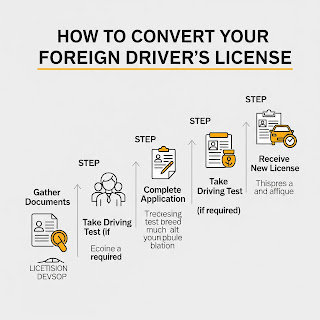Cost of Living in Saudi Arabia: What Expats Should Know Before Moving
When considering a move to Saudi Arabia, one of the biggest questions most expats ask is: “How much does it actually cost to live there?” Whether you’re relocating for work, business, or a new life adventure, understanding the cost of living is key to planning your budget and expectations.
In this post, I’ll break down the major expenses you’re likely to face — from housing and groceries to transport, healthcare, and entertainment. I’ll also share a few tips based on my personal experience living in Riyadh as an expat.
1. Housing & Rent
Housing is usually the biggest monthly expense for most expats. The good news is: compared to many Western countries, rent in Saudi Arabia is relatively affordable — especially if your employer covers it (which is common in some expat packages).
- 1-bedroom apartment in city center: SAR 2,500 – 4,000/month
- 1-bedroom outside center: SAR 1,800 – 2,800/month
- 2–3-bedroom furnished flat: SAR 3,500 – 6,000/month
- Villa in expat compounds: SAR 7,000 – 15,000/month
Note: Compounds (gated expat communities) are pricier but come with perks like pools, gyms, and Western-style freedom.
2. Utilities & Internet
Utilities in Saudi Arabia are subsidized and quite affordable compared to many countries. However, air conditioning usage in summer can spike your bill.
- Electricity, water & gas (average): SAR 200 – 500/month
- High-speed internet (fiber): SAR 250 – 350/month
- Mobile plan (with data): SAR 100 – 200/month
3. Groceries & Food
Grocery prices vary depending on what you buy. Local products (rice, bread, chicken, dates) are cheap. Imported items (cheese, branded snacks, foreign fruits) are more expensive.
- 1 liter of milk: SAR 6
- Loaf of bread: SAR 2
- Dozen eggs: SAR 8 – 12
- Chicken (1 kg): SAR 12 – 20
- Rice (5 kg bag): SAR 20 – 40
- Water (6 x 1.5L bottles): SAR 6 – 10
Monthly grocery bill for one person: SAR 800 – 1,200
For a small family: SAR 1,500 – 2,500
4. Eating Out & Restaurants
Eating out is popular and affordable. You can grab a meal at a local restaurant for SAR 15 – 25, or dine in a mid-range restaurant for SAR 50 – 100 per person. Fast food chains like McDonald's or KFC cost around SAR 25 – 35 per combo meal.
- Local restaurant meal: SAR 20
- Mid-range 3-course meal: SAR 100 – 150
- Coffee at a café: SAR 10 – 20
Saudi Arabia’s café culture is booming, especially in cities like Riyadh and Jeddah, where you’ll find countless Instagrammable coffee shops.
5. Transportation
Gas is very cheap in Saudi Arabia. Most people drive, but ride-hailing apps like Uber and Careem are also widely used. There’s also a growing public transport network in Riyadh, including the new metro system.
- Gasoline (per liter): SAR 2.20 – 2.50
- Uber ride (5–7 km): SAR 15 – 25
- Monthly car rental (small car): SAR 1,200 – 1,800
- Public bus fare: SAR 2 – 5
6. Healthcare
Most employers provide health insurance, which covers doctor visits and hospital care. Without insurance, private healthcare is still affordable compared to the West.
- General doctor visit (private): SAR 150 – 300
- Specialist consultation: SAR 250 – 400
- Basic health insurance: Often included in job package
7. Education (for Expats with Kids)
International schools are expensive — possibly your largest expense if not covered by your employer. Fees vary widely based on school and curriculum (British, American, Indian, etc.).
- International school tuition: SAR 20,000 – 80,000/year per child
- Registration & books: SAR 5,000 – 10,000 (one-time)
8. Entertainment & Lifestyle
Saudi Arabia now offers a vibrant entertainment scene — from concerts and cinemas to festivals and theme parks.
- Movie ticket: SAR 45 – 75
- Fitness club membership: SAR 200 – 500/month
- Weekend trip (hotel + meals): SAR 500 – 800/person
Events under the Vision 2030 initiative, like Riyadh Season or Jeddah Season, are helping expats and locals explore more of Saudi’s new cultural face.
9. Salaries vs. Expenses
Average monthly expat salaries in Saudi Arabia (based on profession):
- English teacher: SAR 8,000 – 12,000
- IT/Engineering: SAR 12,000 – 20,000+
- Healthcare professionals: SAR 10,000 – 18,000+
- Retail/Service roles: SAR 3,000 – 6,000
With careful budgeting, you can save a significant portion of your salary — especially if housing and transport are provided by your employer.
10. Tips to Save Money in Saudi Arabia
- 💳 Shop at local markets (baqalas) for fresh fruits and veggies.
- 🚗 Carpool with coworkers or use ride-sharing apps.
- 🛍️ Use discount apps like Cobone or Noon for deals.
- 💡 Avoid using air conditioning 24/7 — use timers and eco settings.
- 📦 Buy in bulk from stores like Danube, Lulu, or Carrefour.
Final Thoughts
Living in Saudi Arabia as an expat can be quite affordable — especially if you plan your expenses wisely and take advantage of employer-provided benefits. From housing and healthcare to groceries and entertainment, you’ll find a lifestyle that balances comfort, modern convenience, and cultural richness.
If you’re planning your move or already living in the Kingdom, I hope this guide gives you a clear picture of what to expect. Feel free to reach out via the contact page or share your own experiences in the comments!
🔗 Related Reading:
- What to Pack (and NOT Pack) When Moving to Saudi Arabia: Expat Checklist
- Starting My Life in Saudi Arabia: An Expat's Personal Journey
— The Author, My Life in Saudi




Comments
Post a Comment